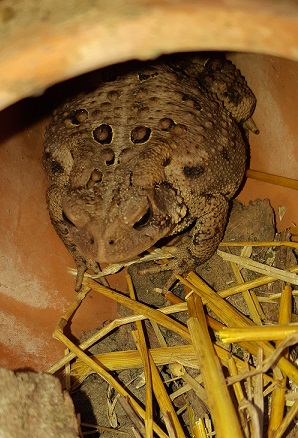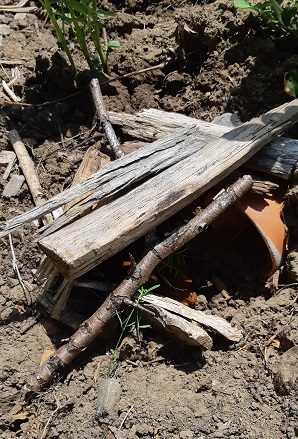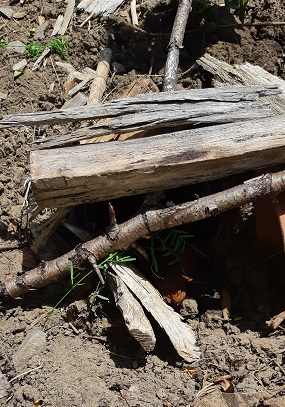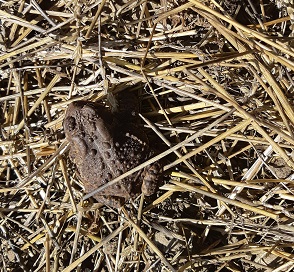Article and Photos by Dinah Gibbs, a member of the Richmond Hill Garden & Horticultural Society
As a toddler, the firstborn to my parents, I enjoyed time spent in the garden playing in my sandbox. A companion, who invariably joined me in my play, was a magnificent toad. I named my new friend "Toady." Hardly original, I know. I was glad of the companionship; however, I had no idea how fortunate we were to have toads residing in the garden.
Toads eat insects which damage flowers and vegetables. Their very presence indicates a healthy environment as they are very sensitive to toxins. I just thought toads were fascinating creatures who trusted a solitary little child. Toady hopped around, gazing at me with the most beautiful golden eyes.
Last year, while planting potatoes, I spied a toad in my vegetable plot. I wanted to encourage that toad and all others to stick around. I sunk a terracotta plant pot sideways half into the ground. I placed a plastic container close by, constantly supplied with clean water for my "bug crew" to drink. I covered my Toad Motel with sticks and leaves for shelter, until the potatoes grew up to provide leaves.


I was rewarded by few insect pests all season long. Working in the garden all summer, my eyes often detected movement as the, perfectly camouflaged, amphibians hopped to safety. The day I finally finished cleaning up the last of my crop and prepared the soil for winter, I saw at least seven toads!
Unsure whether my Toad Motel was suitably winterized, I none the less piled soil, straw and leaves on it, leaving a small entrance. I also put dry straw and leaves into the terracotta pot as added insulation. As the leaves fell, the migratory birds departed and days shortened, I didn't see Toady again. I did refill the water before it freezes, just in case. Sleep tight, Toady, see you in the spring!


And yes, he and his friends are here again this spring. So, if you see a toad, you have a healthy environment for your garden and a little toad shelter will help keep them close by to eat the bad insects!









